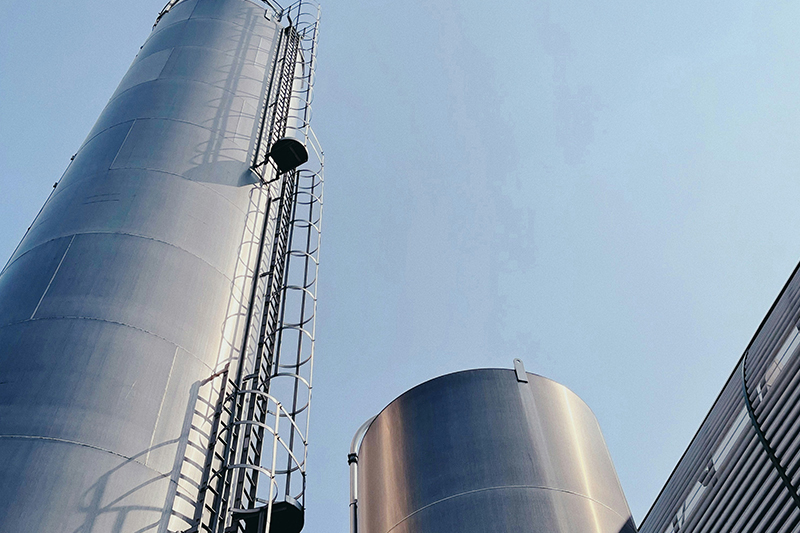Confronting the Chemical Industry’s Problems in Selangor, Klang, and Kuala Lumpur, Malaysia
Leading the industrial advancement of Malaysia, Selangor, Klang, and Kuala Lumpur are the mainstays of the country’s rapid industrialization. But, despite the economic growth, the chemical industry is confronted with challenges that are distinct from other sectors. Businesses must scale innovation and precision amid complexities and regulatory and operational constraints. In this article, we will be looking at these problems and offering solutions to availing enterprises with effectiveness and foresight.
Difficulties in the Chemical Industry
In Selangor, Klang, and Kuala Lumpur, Malaysia, the chemical industry consists of particular challenges such as strict regulations and the need for consistent product quality. Traversing this regulatory maze requires arduous compliance with the ever-evolving sector prescriptions—this is not very easy given the technical and specialization necessary in chemical production. In addition, the firms have other troubled areas guaranteeing the safety of the chemicals that each of them is accountable to handle and storage, which raises the firm’s operational complexity and costs incomparably. Additionally, the industry is disrupted by supply chain issues that are prevalent in all sectors.

Nevertheless, the chemical segment demands more robust contingency measures because it is dependent on the accurate sequence of inventory and production processes. Labor deficits, a common problem, need new and innovative measures in a sector that usually opts for skills over automation.
ERP Systems: A Solution to Industry Challenges
The application of an Enterprise Resources Planning (ERP) system, primarily with an artificial intelligence (AI) growth, becomes the effective tool that helps in fighting the troubles of the chemical industry in Malaysia. An ERP system, such as aiM18, will solve the problem of the compliance by automatically adapting to the new regulatory changes through using bespoke algorithms thus, eliminating the manual work and minimizing the related errors.
Besides, ERP systems create more operational efficiency through the supplying of pay visibility of operations. By effective planning of production and human resources, the businesses could deal with disruptions in the supply chain much better, thus, meeting the terms of serial production on time. On top of that, the information and statistical analysis of the production process close to real-time that is provided by AI agents help the firms to deal with the disruptions proactively and in this way ensuring that the production and distribution activities will be carried out without interruption.
Roadmaps for Efficient ERP Implementation
Albeit the advantages of ERP systems are unmistakable, going through successful implementation requires considered planning and execution. It is not enough to just set the system goals what is equally important is to find out the specific needs of the firm’s operations. It is the case that selecting the appropriate ERP system for the business, which must connect smoothly with the old workflows, is the key. LAIDFU is a powerful example that combines Leadership, Adaptability, Integration, Data accuracy, Flexibility, and User engagement. With planning and making the right decisions ERP systems can be maximally utilized by firms.
Multiable ERP System – Main Features
Multiable ERP systems tackle multiple issues endured in the chemical industry via the following rations:
- Custom Algorithm for Ever-Changing Regulations: Guarantees seamless changes to the regulatory framework and compliance.
- Lot / Serial Number Control: Provides accurate product traceability, which leads to reduced inventory errors and improved safety.
- Automatic Logistics Service Provider (LSP) Selection by AI: Preserves logistics and distribution efficiency through the elimination of supply chain barriers.
- Unlimited Warehouses: Contributes to the resolution of difficult storage and handling problems encountered in chemical logistics through the provision of various flexible solutions.
- Vehicle/Fleet Management: Accelerates the movement of transportation exercises toward a safe and efficient delivery of chemical products.
E-Invoicing Support: Simplifying Financial Transactions
In compliance with the Inland Revenue Board of Malaysia (IRBM) Multiable was introduced as an e-invoicing supporter, offering free e-invoicing API calls to customers who get the benefit to SaaS subscriptions or software assurance. In contrast with a plethora of software vendors in Malaysia, who charge for API use, this is totally free of charge. Such arrangement is very cost-efficient as well as lead to the simplification of the financial management process for both small and large entities.
What is Multiable ERP?
Multiable ERP is a cloud-native ERP widely adopted by business in Singapore, Malaysia, Hong Kong and China. With over 6,000 customers in the region, Multiable ERP gains positive feedbacks from customer across different sectors, from manufacturers, distributors, retailers, service providers to NGOs. The renowned no-code approach saves customer a big sum of customization costs and countless hours of implementation man-days.
What is LAIDFU (Let AI Do for You)?
LAIDFU is an AI tool for enterprise to build their own AI agents to perform various business AI tasks.
Proprietary EKP (Enterprise Knowledge Partitioning) technology eases CEO’s concern about trade secret leakage which often occurs in most AI agents / chatbots in the market.
EKP removes the hurdle of business AI adoption by most companies in using sensitive corporate data.
Powered by no-code approach, deployment of LAIDFU incurs far less developers (and development costs) in comparison with other AI tools.
LAIDFU empowers business, with or without an ERP system in place.
Contact us